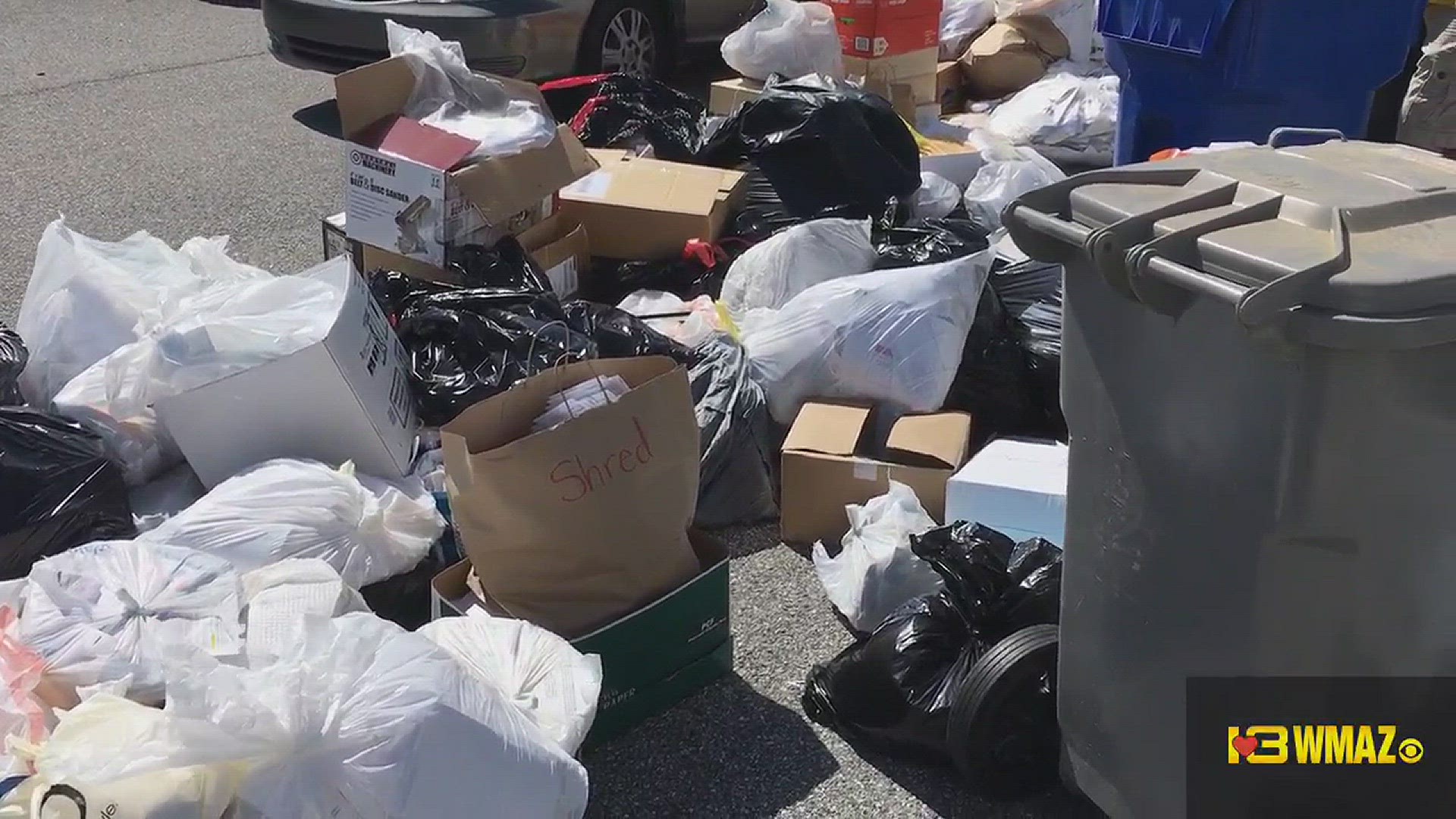MACON, Ga. — If you have some old documents plaguing your desk or your home office, there are two places in Central Georgia that are here to help.
In Macon and Warner Robins, there are two events — one held by Goodwill and The BBB and another by Robins Financial Credit Union and Keep Warner Robins Beautiful — to help you get rid of those pesky old documents while also keeping your information safe.
And they're coming up fast. They're scheduled for Saturday and Sunday.
If you have questions about what to shred, we also have some tips that can help you decide what to shred and what you need to save.
Macon: Goodwill and Better Business Bureau
On Sept. 28, come to Goodwill Industries' location at 5171 Eisenhower Parkway, where they'll be shredding up to 3 trash bags per person during their Shred Day event.
However, they do say that there are some items you should not bring.
They said that 3-ring binders, external hard drives and metal products will not be accepted at the event.
The event will take place from 9 a.m. to 11 a.m.
Warner Robins: Keep Warner Robins Beautiful
On Sept. 27, Keep Warner Robins Beautiful and Robins Financial Credit Union will join together for their Shred Day event.
The event, which is scheduled for 9 a.m. and until 1 p.m. at 716 N Young Avenue,
encourages you to "let our shredder work for you!"
There are limits, however. You can only bring two boxes or trash bags per vehicle.
Why does shredding matter?
Shredding is not just a way to clean off your home office or desk. In fact, shredding documents is an important safety precaution against identity theft.
In the course of our day-to-day lives, we encounter many documents — like credit card bills, utility bills and more — that have your personal information. Those are records that likely should be discarded through shredding.
If you just throw it out, an identity thief could use those documents to take advantage of you.
The Federal Trade Commission wrote: "For those who are thinking, maybe I should keep everything, just in case. . . remember that identity thieves can’t find documents you have destroyed. Destroying documents with your personal information reduces the likelihood of becoming an identity theft victim."
However, there are limits, and the FTC has some guidelines on what to shred and what to keep.
What to shred and what not to shred?
Shredding is particularly important for documents that include sensitive information.
Because of that, there are likely some documents you want to get rid of — but other documents where you have to ask: should I get rid of this one?
The Federal Trade Commission offered their advice on what to shred and what's best to keep, and of course, some items they recommend you keep forever and "lock securely."
- Birth certificates or adoption papers
- Social security cards citizenship papers or passports
- Marriage or divorce decrees
- Death certificates of family members.
Additionally, they recommend you keep your auto titles and home deeds stored safely. But once you move or are done with your car, they say you can safely get rid of them.
What about your tax records?
With your tax returns, they say it is best to keep those records forever, even though they admit that is a little "conservative advice."
If you get pay stubs through your job, the FTC recommends keeping those until you can check them against your W-2. After that, you can safely shred them.
If you have other tax-related receipts — including canceled checks — the FTC says you should probably keep them for at least seven years. Here's why: the IRS can audit someone within seven years under some circumstances, even though the typical deadline is three years.
Because of that, it is safer to keep those until that deadline passes, just so you have your ducks in the row if you need them.
Still have questions? The FTC recommends contacting an accountant or the IRS at their taxpayer assistance number at 800-829-1040.
Home renovation records
When working on renovations to your home, the FTC says you should also keep those receipts and records for one important purpose: they can save you money when tax season comes along.
When you sell your home, you're taxed on any value added to your home from the point of purpose. In other words, you're taxed on how much your house has appreciated in value. This is called the capital gains tax.
However, if you have contributed your financial resources for renovation sand what not, you can use those receipts to help reduce your capital gains tax when/if you sell your home.
The FTC has more tips, tricks and recommendations on their website here along with other tips for preventing identity theft here.

